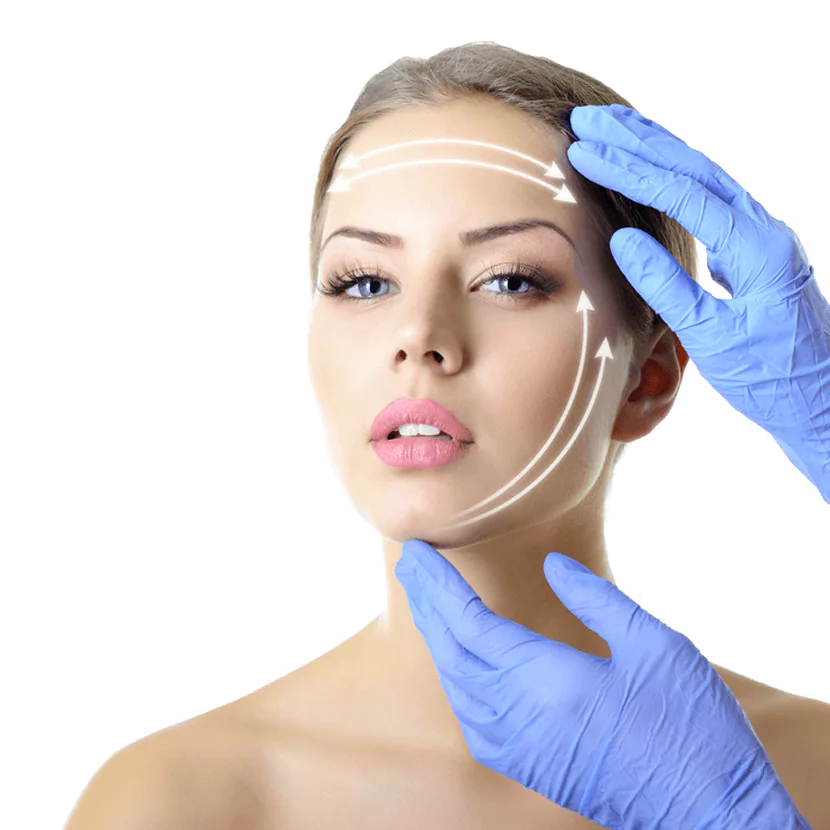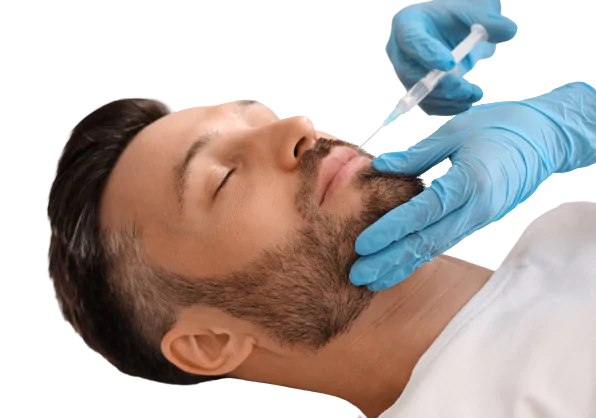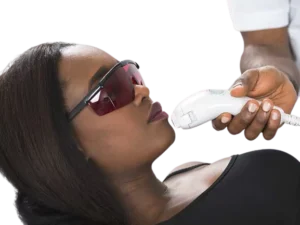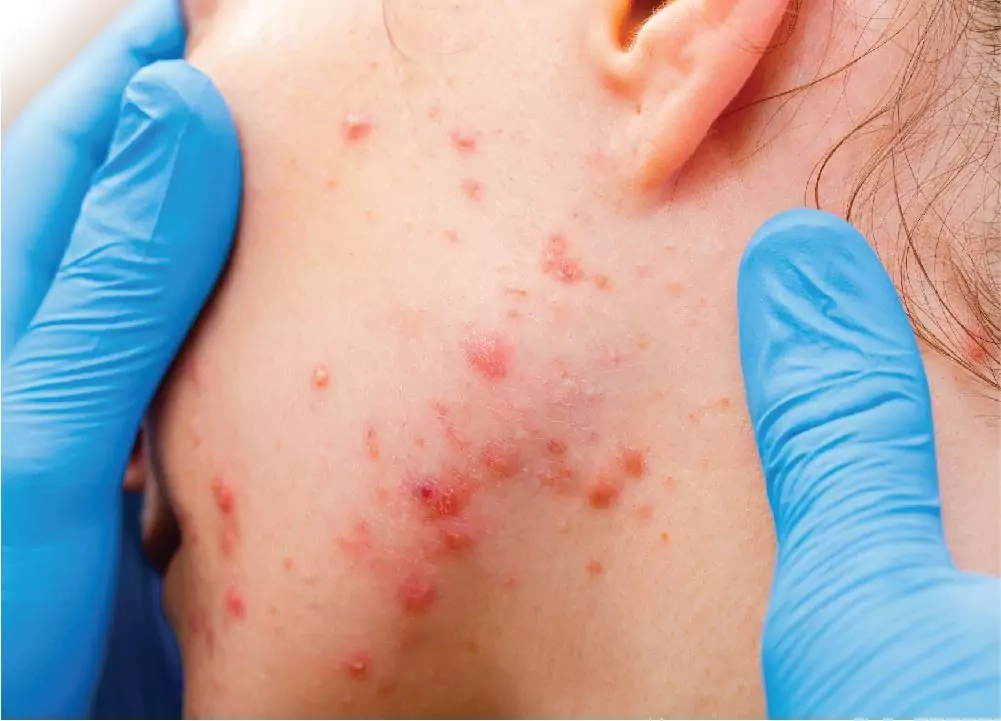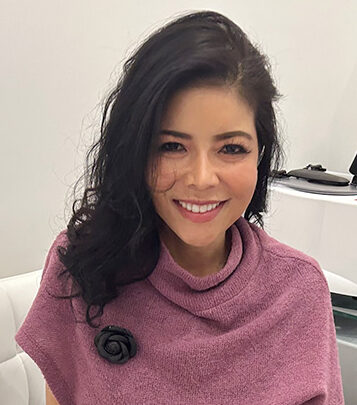Acne Treatment
Acne, a prevalent and complex skin condition, affects individuals across various age groups. While it typically emerges during adolescence and often diminishes in adulthood, some individuals endure persistent acne for extended periods. This condition transcends gender and ethnicity, impacting nearly everyone at some point.
Primarily afflicting the face, acne can extend to the neck, chest, back, and other body areas. Manifesting in various forms, from mild blackheads and whiteheads to inflamed red spots and pus-filled pimples, untreated inflammatory acne may result in lasting scars. Even larger, deeper cysts akin to boils can develop, underscoring the importance of timely intervention.
Regardless of the severity, acne can significantly impact self-esteem and confidence. Recognising that effective treatments are available is crucial. These treatments not only alleviate symptoms but also enhance appearance while preventing long-term complications, including scars and marks.
Treatment modalities encompass topical medications, oral antibiotics, and hormonal therapies like contraceptive pills. While some may find relief through over-the-counter products, consulting with a specialist before initiating any treatment plan is advisable.
Acknowledging that treatments may take time to yield results, our specialised Acne Treatment is designed to address the root causes. By reducing excess oil production and preventing follicular blockages, our treatments aim to minimise inflammation and diminish scarring. Regain control over your skin with the right professional guidance and embrace confidence in your appearance once more.
Why Choose Design Derm for Acne Scar Treatment in London?
A chronic skin condition needing ongoing treatment requires finding the right dermatologist. It’s vital for us that you feel confident in the care you receive and comfortable with your dermatologist.
Derm Design clinic specialises in Acne scar treatment in London and is a comprehensive care unit for all dermatological needs. Our clinic is easily accessible, ensuring you can see a dermatologist without hassle.
We prioritise creating a welcoming and relaxing environment for our patients. Our clinic is regulated and authorised, guaranteeing safe and effective treatment. You can trust us to provide top-quality care for your skin concerns.
Frequently Asked Questions
What Are the Main Causes of Acne?
The 4 main causes of acne are:
1.Excess oil (sebum) production – your oil-producing glands produce an excessive amount of oil.
2. Hair follicles clogged with oil and dead skin cells.
3. Bacteria – Although acne isn’t a disease, The presence of Cutibacterium acnes (C. acnes, previously known as Propionibacterium acnes), other bacteria, and yeasts contribute to inflammatory acne lesions.
4. Inflammation– inflammation plays a primary and secondary role in acne. It presents throughout the event of acne lesions, both during the primary stages of non-inflammatory acne and the inflammatory stages where papules, pustules, and nodules are present.
What Are The Types of Acne?
There are various types of acne, and understanding your form is essential to find an efficient and lasting treatment. Broadly, there are two main types: non-inflammatory acne and inflammatory acne.
Non-inflammatory acne doesn’t cause swelling of your skin. There are two main kinds of non-inflammatory acne:
1. Blackheads – also called open comedones, blackheads form when pores become clogged with sebum and other debris, like dead skin cells, but the pore’s surface remains open.
2. Whiteheads – or closed comedone, also form because of clogged pores. This type of lesions, the outer layer of the pore closes the sebum and debris in.
Inflammatory acne Unlike blackheads and whiteheads caused by sebum and dead skin cells, inflammatory acne causes inflammation and swelling. Bacteria create the inflamed reaction resulting in:
1. Papules – also called pimples, are inflamed red bumps on your skin, these unsightly blemishes form when bacteria and debris enter a follicle. Most lesions occur on the face and are considered a moderate form of acne.
2. Pustules – another moderate type of acne, these are papules with a white-colored tip that contain pus, that is formed as your body reacts to the bacteria, dead skin cells, and oil.
3. Nodules – These are a more severe form of acne. They appear as larger, inflamed lesions that are painful and hard to the touch. Nodules develop deeper down when the sebum, debris, and bacteria enter the deeper layers of the skin because of a damaged follicle. They typically contain pus in addition to oil and debris. Nodules don’t always have a white tip since they form deeper down.
4. Acne cysts – These are one of the most severe, painful kinds of acne which are also foremost challenging to treat. They are large, soft, fluid-filled bumps beneath the surface of your skin, painful to the touch and, often cause acne scars. This type of acne forms the same way nodules form, but acne cysts are more severe and contain blood in conjunction with pus and debris.
What Are the Treatments for Acne?
Depending on how severe acne is, acne treatments can take several months before seeing the improvement. You can start by trying over-the-counter (non-prescription) acne products for mild acne. Before discovering what works best for you, you may need to try several different treatments. And be patient. It can take weeks to determine the results of any medication.
Acne treatments work by inhibiting sebum production, encouraging the shedding of skin cells to unclog pores, limiting bacterial growth, and reducing inflammation. They can be classified into two main categories:
Topical treatments
- Benzoyl peroxide
- Topical retinoids
- Topical antibiotics
- Salicylic acid
- Azelaic acid
Oral medications
- Antibiotics
- Hormonal therapy
- Isotretinoin
You will see results for four to eight weeks with most prescription acne drugs. However, it can take months or years for acne to clear up completely.
In additional to topical and oral medications, there are several other treatments that can be used to help manage acne. These include:
- Chemical peels: can help to unclog the pores and reduce the appearance of acne scars
- Light therapy: can help to reduce inflammation and kill acne-causing bacteria
- Comedone extraction: can help to unclog pores and reduce the risk of acne breakouts
- Corticosteroid injections: can help to reduce inflammation and speed up the healing process
- Complementary and alternative therapies: such as tea tree oil, green tea extract, or acupuncture
Different treatments may work better for different people, and it may be chalennging to find the best approach for managing acne. Moreover, several lifestyle changes can also help to prevent and reduce acne. These include using non-comedogenic products, managing stress, eating a low sugar healthy diet, washing the face with a gentle cleanser, avoiding touching the face with hands, avoiding wearing tight clothing that can trap sweat and oil against the skin, and avoiding using oily or greasy hair and cosmetic products.
Dr Miller is here to help
Are you or anyone you know struggling with acne?
Although acne is a common skin condition, it’s not just a cosmetic concern. Controlling acne can be challenging. More importantly, it can leave permanently disfigured scars on your skin.
Suppose you’ve tried over-the-counter acne products for a while with minimal improvement. It’s time to seek professional help for proper treatments to help control your acne as well as avoid further scarring.
Acne can be treated in various ways, depending on its severity. There are many options for treating acne, but typically it involves prescription oral or topical medications. Dr Miller has over 20 years of experience in treating acne smoothly and effectively.
During a consultation, she will evaluate the stages of your acne as well as your skin type and recommend appropriate management for you.
Treatments include specialised face washes, gels, and creams (many of which require a prescription), systemic treatment (tablets) including antibiotics, hormonal treatment, and Roaccutane® – Isotretinoin capsules (which can only be prescribed by a Dermatologist). For some acne treatments, blood tests may be required before commencing and during the treatment for monitoring.
We offer clinically proven, effective treatments to help control acne in its active stages as well as residual acne scarring that may not disappear without treatment.

